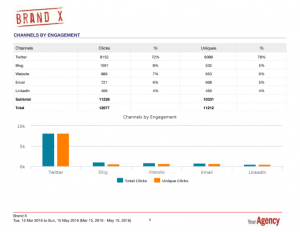Much of my consulting practice centers on working with software-based companies. But I have substantial hardware market experience as well, so I also work with hardware companies. Hardware vs software business models is something that you don’t often see a lot of debate about. But sometimes there is a choice between these two distinct business models (or a combination of both) – so let’s take a look at the differences and relative advantages of each.

So what are the differences and similarities between software vs hardware for successful businesses?
Hardware vs Software Capital Requirements
One of the larger differences is that software companies generally require much lower capital to reach profitability and continued growth. This is primarily because they don’t need to invest in expensive semiconductor development tools and semiconductor masks for semi companies, manufacturing plants/equipment for all types of hardware companies, manufacturing engineering personnel, unfinished and finished goods inventory, etc. So except for startups aiming at huge, established markets and backed by substantial institutional capital, it’s much easier for typical startup software companies to adequately capitalize their businesses with much smaller funding rounds, relative to their hardware and semiconductor counterparts.
Margins
Another important area where software companies generally have an advantage is in margins—both in the area of typical gross margins as well as the potential for higher net margins. This is primarily due to the negligible cost-of-goods-sold for most software companies. As a result, it easier for software companies to reach profitability sooner and if a large enough market is found, sustain that profitability. Remember, throughout this article I am speaking in “on average” terms. There are hardware businesses with excellent gross margins (dominant semiconductor companies come to mind) as well. But in general, this is an area where the advantage goes to software.
Pricing
The big difference between software vs hardware business models here also is related to costs. The major difference comes down to direct product cost, which in the long run creates a pricing floor for anyone who would actually like to make a profit. Optimal pricing of both hardware or software should be based upon a value-based approach—with market segmentation as the key to success. However, in my consulting practice I rarely find this pricing approach to be used rigorously—whether the company markets a software or hardware product.
In the hardware business, you tend to see a lot of simple pricing models that are cost-based. For software businesses, the negligible direct product cost can act as the other end of the proverbial double-edge sword when it comes to pricing. In a competitive software market, you often see aggressive competitors who literally “give away” the initial product (freeware or freemium models) to build an installed based and then rely on an upgrade revenue stream or advertising revenues to make a profit downstream. This can strain the profitability of the entire market segment and in severe circumstances can suck all the profit from the market. You see this scenario most often started by weaker competitors or in market segments where switching costs for customers are high. While hardware pricing can be just as competitive in general, it is less likely for a weaker competitor in a hardware market to introduce a “zero-margin” program. This is because it is often tougher to hang onto a customer in the second generation (if the market has commoditized) and the market leader often has a gross margin advantage—making this tactic an ill-advised maneuver, other than as an attention-getting, short-term promotion.
Distribution
The advent of the Internet has created a major difference in distribution between software vs hardware companies, where there was very little difference in the past. It has made direct distribution much more practical for small software companies in market segments where a simple download or a SaaS-based model is practical. Of course hardware companies sell directly over the Internet as well, but the cost advantages aren’t the same due to shipping, inventory, etc. For those companies which aren’t direct-only, distribution is similar for hardware vs software companies. Traditional distribution through third parties tends to be very similar, although higher inventory costs are even more of a burden that hardware companies need to manage more closely, both for in-house finished goods and in-process inventory–as well as finished goods held by the channel.
Defensible Strategic Advantage
This is an area in which hardware vs software markets have both similarities and large differences. Both hardware and software companies value patents as a form of providing a sustainable competitive advantage. But in my opinion, the inherent malleability of software makes patent protection less useful in software than in hardware. It is easier to “find another way” of accomplishing the same end result when you are dealing strictly in software code. It’s also easier to segment in software markets, creating a targeted, niche version of a software product for a specific segment, allowing a smaller competitor to nip at a market leader without drawing their fire. It’s much harder for a small hardware company to differentiate itself this way. On the other hand, a hardware market leader that establishes itself and creates a large volume business gains important competitive advantages—cost efficiencies and brand recognition are huge, defensible advantages. So I believe this point comes down to scale—in software markets, it’s easier for a small competitor to overcome the scale of larger competitors and develop a niche strategic advantage. While in hardware, the large competitors can use scale to create the ultimate competitive advantage.
Hardware vs Software Localization Requirements
This is an area in which hardware companies normally have an advantage. They usually have simpler user interfaces, and sometimes utilize symbols extensively in their interfaces, greatly reducing translation requirements into local languages. Hardware companies do have to deal with some physical differences in standards, such as electrical—but these have stabilized over time, and are often handled easily in one or just a few standard product version(s), which allows the selling of it worldwide.
Conversely, software user interfaces are usually language intensive and more complex, with much more extensive user documentation. This requires many software companies to live with higher localization costs and longer lead times if they want to market worldwide. The exception to this is complex software sold to highly technical/educated users, where English is often used as the standard language on a worldwide basis.
Potential for Dominance
I’m going mostly by empirical evidence here. It seems that there have been a lot more hardware companies who have dominated their respective businesses for a longer period of time than in software. For every Microsoft it seems there are many more examples like Intel, Cisco, IBM, HP, Dell, etc. Hardware markets tend to commoditize more easily, but this occurs with standardization on a few leading brands in the long term. It’s harder to make money in the long run in hardware unless you are one of the top two or three players. Large hardware markets are also relatively larger in revenue than the corresponding “large” software markets, allowing market leaders to more fully utilize their profit and cost advantages over competitors, by spreading marketing costs over larger revenue bases. So if your desire is to build a truly dominant company from scratch, the odds appear greater in hardware—although you probably are still better off heading to Las Vegas and putting your life savings on roulette red!
There are many more ways to contrast and compare hardware vs software business models for tech companies, but I will end it here. What other points would you add? As usual, post a comment or send me an email message to further the discussion.
The post Should You Start a Hardware or Software Business? appeared first on the Morettini on Management Blog.
If you liked this post please share it with you colleagues using the “share” buttons or leave a comment below.
Business & Finance Articles on Business 2 Community(44)
Report Post






